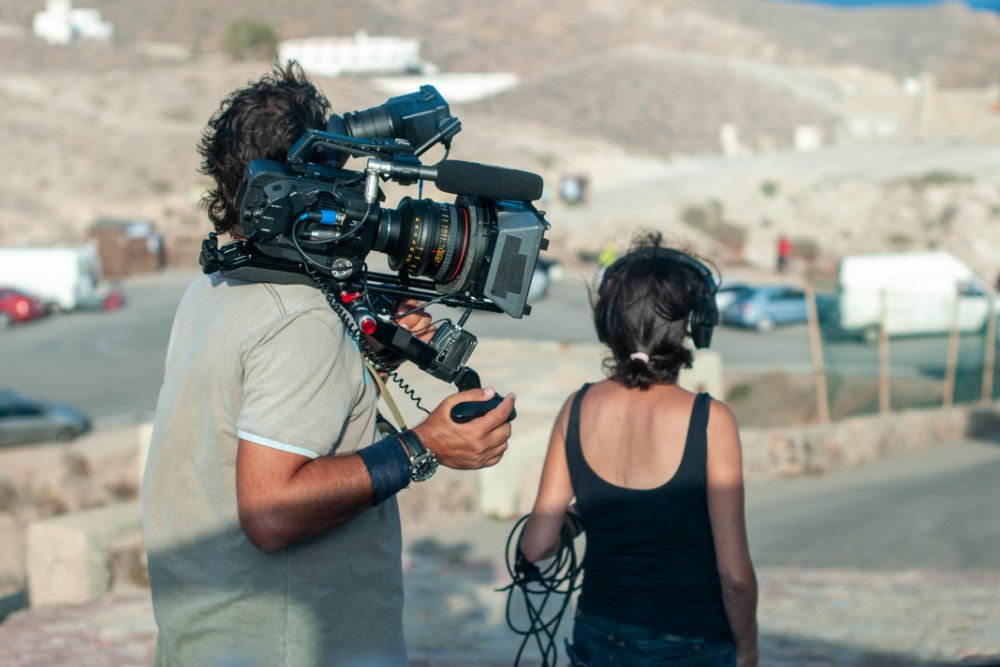“A Very Different Era.” Why a Tech Donor is Stepping up for Journalism Ethics
/ESB Professional/shutterstock
Tech donor Craig Newmark made our 2018 Philanthropy Awards for dramatically stepping up his giving in recent years to tackle urgent issues like voter protection and the integrity of news. Earlier this month, the Chronicle of Philanthropy named Newmark one of the 50 biggest donors in the U.S., reporting that he gave away $144 million last year. He was among more than a dozen tech winners on the list—a reminder that the vast fortunes of the tech industry are rapidly reshaping the philanthropy landscape.
Near the end of last year, I talked to the Craigslist founder about his $2.5 million gift to New York Public Radio (NYPR) to fuel the integration and expansion of WNYC and Gothamist. In a world where news deserts are spreading, Newmark aims to empower local media and grassroots journalism. Newmark’s emergence as a deep-pocketed backer in this space has come after Craigslist helped destroy the newspaper industry by wiping out the hefty revenue stream that once flowed from classified advertising.
Now comes recent news that Craig Newmark Philanthropies gave a total of $15 million to support journalism ethics. The gifts—$10 million to the Columbia Journalism School and $5 million to the Poynter Institute—will bolster efforts to strengthen journalism ethics for the digital age. The $10 million gift to Columbia Journalism School will endow the Craig Newmark Center for Journalism Ethics and Security, and the Craig Newmark Professorship. The additional $5 million to the Poynter Institute will create the Craig Newmark Center for Ethics and Leadership, providing working journalists and industry leaders with relevant training and continued education.
I recently spoke with Newmark, Columbia Journalism School Dean Steve Coll, and Kelly McBride, Senior Vice President of the Poynter Institute, to find out more about how the gifts came about and the story behind it.
Newmark tells me that he’s been working with different parts of the Columbia Journalism School for years, and is on the board of the Columbia Journalism Review, focusing on supporting a counter-disinformation beat led by Matthew Ingram. A tech guy at heart, Newmark also works with Emily Bell and Jonathan Albright, leaders at the Tow Center for Digital Journalism at Columbia's Graduate School of Journalism, exploring issues like the flow of disinformation, its effects, and how to counter it.
Coll, a Washington Post veteran who’s led Columbia’s J School since 2013, explains that he’s been in Newmark’s orbit for a while. They met when Coll was president of New America Foundation, a D.C.-based think tank, and later reconnected through the Columbia Journalism Review. Coll says that he’s often been in conversation with Newmark about the funder’s concerns. “Over the last couple of years, one interest has been rethinking journalism ethics for this age of disinformation and to address all of the new technologies that are reshaping journalism practice. Here at Columbia, we have a strong interest in journalism ethics internally. We’re an institution that was founded on professional responsibility in journalism 100 years ago, and so that seemed like an idea where Craig could really help.”
Newmark adds that journalism ethics is facing new challenges, including “problems of false equivalence, and for that matter, how do you prevent propagating a lie by repeating it? These are issues that big-deal institutions like Poynter and Columbia need to take a look at.”
Coll noted that the ethical code around journalism had remained relatively stable during the newspaper age.
Issues didn’t change a lot from Watergate to the World Wide Web. But now, we’re in a very different era with a whole new bag of questions that journalists have to reckon with. Yet, the institutional strength of journalism has weakened because of the decline in newspapers, and the disruption and new entrance of everything from Buzzfeed to Vice. Doesn’t need to be an old conversation, in fact it can’t afford to be, but we need to address new challenges of 21st century journalism… This gift will allow us to speak back to journalism’s critics and develop a common sense of competence and confidence about what ethical journalism should look like.
Newmark explained to me that the plan for his $15 million is for Columbia and Poynter to work in concert, tackling these questions together and then applying them to their respective audiences. Poynter Institute Senior Vice President Kelly McBride has been with the St. Petersburg, Florida-based institution since 2002. Formerly a veteran newspaper reporter in the Pacific Northwest, McBride came in to Poynter as an ethics faculty member, and became primary ethicist a couple of years later. She’s done work with organizations from all over the world, building up their culture of ethical decision making. And now, thanks to Newmark’s gift, she’ll add the title of inaugural Newmark Ethics Chair.
McBride has been thinking for years about journalism ethics in a new era of digital media. “I brought together people who were very active on social media or had created social platforms. For instance, Alexis Ohanian and the managing director of DailyKos. I realized that they were, indeed, influencing the ethics of journalism, and wanted to do a specific project related to that.” Out of this work, she co-edited The New Ethics of Journalism: Principles for the 21st Century, which Newmark ended up bankrolling.
McBride was encouraged by Newmark’s true passion in the area beyond simply writing checks. “I talked a ton about some of his ideas about journalism ethics and whether they would work or not, and through that relationship, he became a very loyal and generous supporter of the Poynter Institute,” she explains. Newmark previously supported the institute with a $1 million gift in 2016.
Both Coll and McBride provide strong examples that an institution’s leadership can serve as a connection point for donors, drawing on long relationships. As we often note, big gifts rarely materialize out of the blue; they almost always reflect years of cultivation.
As for the funds, McBride says that she hopes they’ll create a “place where we can truly advance the practice of public service journalism in the modern environment. It’s very hard to make money in journalism right now, and especially hard to do the kind of journalism that’s in the public’s interest, as opposed to the interest of somebody else. We really hope we can create the framework for the next iteration of journalism, whatever that looks like. It’s very clear that journalism is going to change.”
Don’t expect Newmark’s philanthropy to slow down anytime soon. While he tells me that he can’t “pre-announce anything,” there’s a lot coming down the line. Expect journalism to loom ever larger for this funder, whose net worth stands at around $1.5 billion. “I’m an outsider. I am a consumer, but I don’t know the news business. But I do know that people of goodwill need to stand up and help the press defend democracy, and that means I need to put my money where my mouth is.”
Additionally, expect New York City to remain an important area of Newmark philanthropy. “Personally, I can say that my wife’s family and my family are kind of centered here.”







































